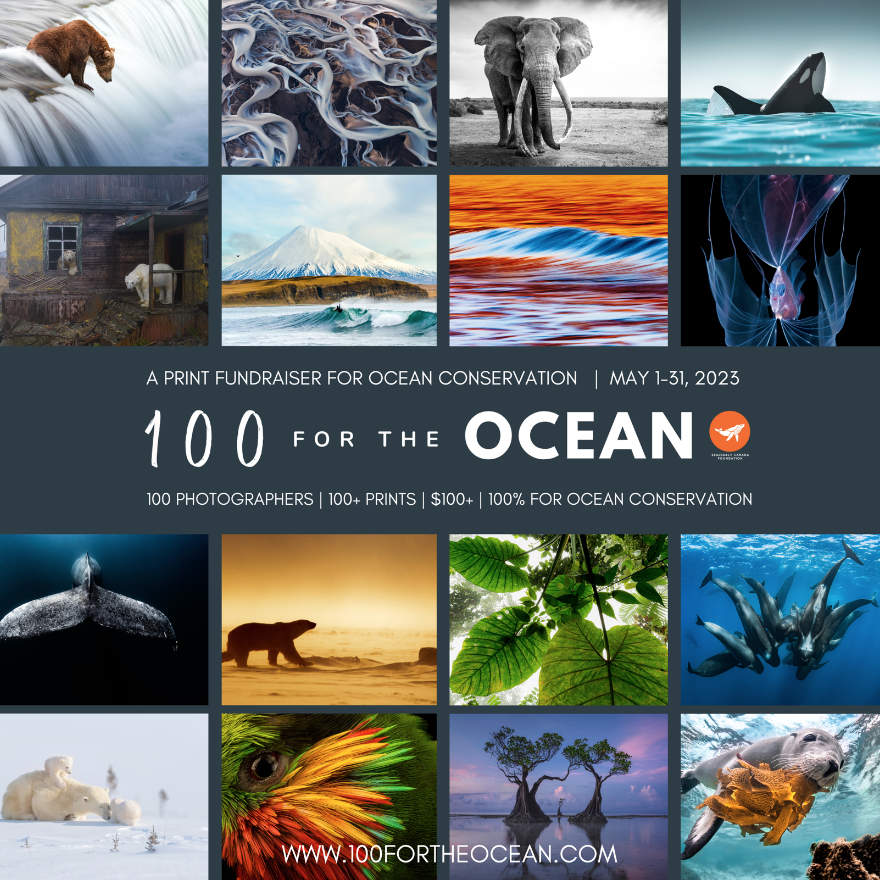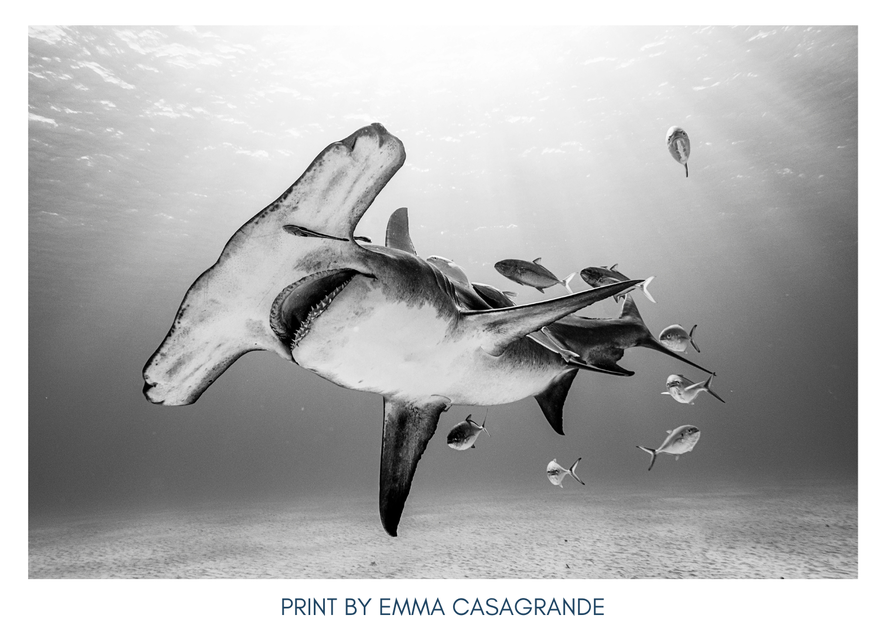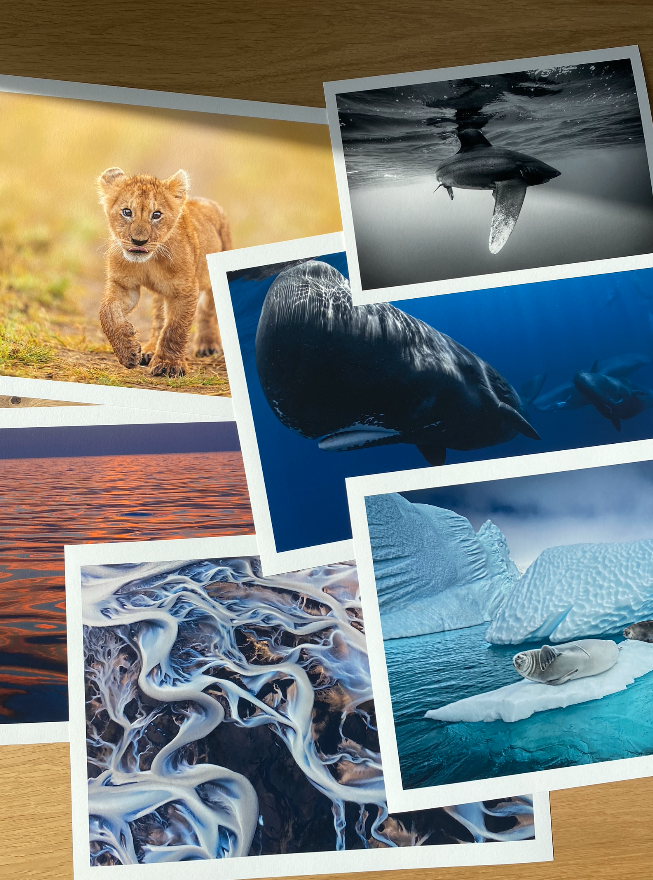Our contributor, Michelle Valberg, is one of the photographers participating in this important conservation effort!
“Hi there. As you likely figured out… I am one of the 100FORTHEOCEAN photographers! LOL. Thrilled to be a part of this print campaign in support of our oceans. So many incredible photographers in this lineup, it is a powerful initiative and thriving in its first few days. Just wanted to bring attention to this campaign if you haven’t seen it already. Have a look at the work – it’s a great chance to buy an original by one of your favourite photographer (hoping that is me LOL) – Nicklen, Mitty, Cobb, McCurry etc. It’s worth a look at the curation of wildlife/nature images in this collection. Have a wonderful Thursday! Thanks always for your support!”
By Michelle Valberg
What Happens When You Buy a Print?
Here’s How We Are Taking Action.
Here’s a few interesting facts about our ocean, and why we need the world to act on protecting and restoring our planet’s more precious resource.
All prints sales minus the cost of print production goes towards these key areas through SeaLegacy Canada Foundation and our selected NGOs.
Our goal is to not only raise awareness but to take concrete action.
The photography, the prints, the artwork all help grab your attention to help begin the conversation. By showcasing the work of 100 world-class photographers, 100 for the Ocean aims to draw attention to the beauty, complexity, and vulnerability of marine environments. Through powerful imagery, the project seeks to educate people about the importance of healthy oceans as allies in our fight against the threats they currently face.
The global ocean faces incredible challenges include, but are not limited to:
- Climate Change: Climate change is one of the biggest challenges facing the ocean. Rising temperatures, ocean acidification, and sea level rise are all impacting marine ecosystems and biodiversity. The ocean produces 50% of our oxygen that we breathe and it is a vital carbon sink.
- Overfishing & Poor Fishing Management: Overfishing is a major threat to the ocean’s health, with many fish stocks being harvested at unsustainable levels. This can lead to declines in fish populations and impacts the entire marine food web. For example, it is estimated that up to 100 million sharks are killed each year, largely due to overfishing and the demand for commercial products (makeup ingredient listed as: squalene = shark liver) and for food delicacies. This represents a significant decline in shark populations, with some species declining by up to 90%.
- Pollution: Pollution, including plastic pollution, oil spills, and chemical pollution, is harming marine life and damaging marine habitats.Plastic Pollution: There are currently trillions of pieces of plastic in the ocean which add up to over 2 million tons of plastic currently cover the world’s oceans. With an additional 8 million tons of plastic entering the ocean every year. This pollution harms marine wildlife, damages marine habitats, and even enters the human food chain. To put this in perspective, a study from The 5 Gyres Institute reports that there are 21,000 pieces of plastic per person on the planet in the ocean.
- Habitat Loss + Biodiversity Loss: The destruction of marine habitats, such as coral reefs and seagrass beds, is a major threat to the health of the ocean. These habitats provide important homes and food sources for many marine species. Biodiversity Losses Since 1970: Since 1970, marine biodiversity has declined by an average of 36%, with some species experiencing population declines of up to 80%.This loss is attributed to overfishing, habitat destruction, pollution, and climate change. The destruction of marine habitats, such as coral reefs and seagrass beds, is a major threat to the health of the ocean. Coral reefs are particularly vulnerable, with an estimated 50% already lost or severely damaged. Additionally, pollution from various sources, including oil spills, sewage, and agricultural runoff, harms marine life and damages habitats.
- Species: Invasive species can disrupt marine ecosystems and displace native species, leading to declines in biodiversity and changes in ecosystem dynamics.
- Ocean Acidification: As the ocean absorbs carbon dioxide from the atmosphere, it becomes more acidic, which can have negative impacts on marine life, including corals and shellfish.
- Marine Protected Areas from Poor Governance: Less than 8% of the ocean is considered a Marine Protected Area. Weak laws and enforcement, can lead to unsustainable and damaging practices in the ocean, including overfishing and pollution. There’s no accountability nor ownership of MPA’s.
Buy A Print & Take Action for Ocean Conservation
Funds raised from 100 for the Ocean print fundraiser is going towards these 7 key wedges through amplifying and helping the selected ocean NGOs (Non-government organizations).
*Our group of 100 contributing photographers has nominated and voted on underfunded, under-represented organizations from around that world that need our help. We will announce the 5 selected mid May!
- Protect more of the ocean. By advocating for the protection of at least 30% of the ocean real estate of the countries who have signed the CBD by the year 2030 (i.e., the 30×30 goal).
- Protect more species. By supporting protections through international agreements like CITES, and local governments.
- Restore degraded habitats. By promoting the restoration of habitats like mangrove forests and coral reefs
- Stem the flow of pollution to the ocean. By supporting technological innovation and policy change
- Rethink how we source food from the ocean. By advocating for policy change, public awareness and innovation in aquaculture practices and plant-based seafood alternatives.
- Recast the ocean as a solution to climate change. By contributing to the restoration and protection of blue carbon sinks, the creation of blue carbon marketplaces, and the support of innovative solutions,
- We must achieve Ocean equity and justice for coastal communities. All the work that we do in each of the wedges has to be viewed through this lens to make sure the solutions we are proposing do not leave people or planet behind. We also must identify and support the next generation of ocean change-makers from diverse communities across our planet.
We hope that you get a piece of art that represents your love for the ocean and for Mother Nature. Thank you so much for taking the time to read this and to take action.
With hope and gratitude,












Excellent photos and informative news. I’m missing receipt of free hard copy which I appreciated being able to gleam from time to time.
Hi Fanny,
Thanks and we appreciate your comment!
Due to the high costs of printing, we have unfortunately had to cancel the print edition of PHOTONews.
Please join us in PHOTONews Flash, our e-newsletter, featuring our favourite contributing editors: Dr. Wayne Lynch, Tony Beck, Don Komarechka, Peter Dulis, Crombie McNeill… And more!
If you want, you can simply reply to this message, and we can add your email address to the PHOTONews Flash e-newsletter. Or you can subscribe online at:
https://www.photonews.ca/subscribe/
Thanks.